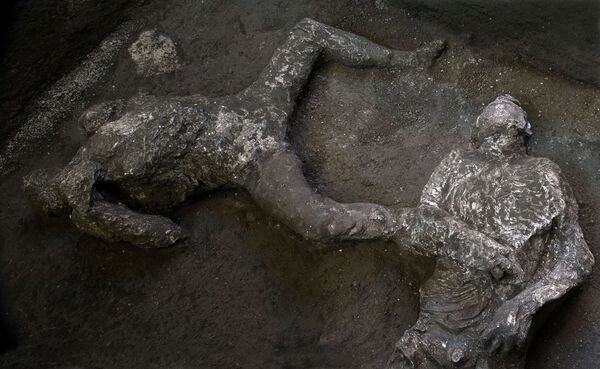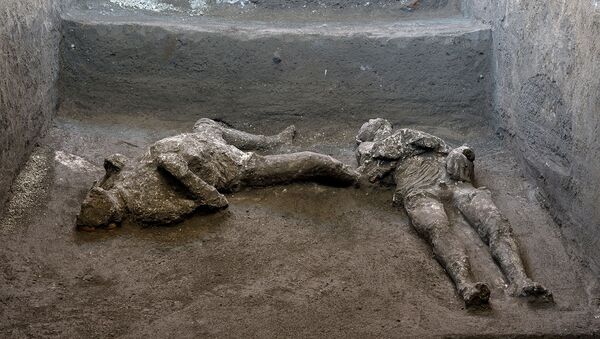Archaeologists have discovered the remains of two men killed in the volcanic eruption that destroyed the ancient Roman city of Pompeii nearly 2,000 years ago.
One was probably a man of high status and the other his slave, reported the Observer, quoting officials at the Pompeii archaeological park.
The find was made in a dig carried out during the coronavirus pandemic, the Italian culture ministry said.
Pompeii director Massimo Osanna said the two victims may have been seeking refuge when they were engulfed by clouds of ash, rock, and toxic gas shortly after the nearby volcano Vesuvius erupted in AD 79.

One victim was believed to be a man of high status, aged between 30 and 40, who still had traces of a woolen cloak under his neck.
The second, probably aged 18 to 23, was dressed in a tunic and had a number of crushed vertebrae, indicating he may have been a slave who did heavy manual labour.
The remains were found in an underground chamber in the area of a large villa where some archaeological discoveries were previously made.
The men's teeth and bones were preserved, and the gaps left by the decay of the body's soft tissue were filled with plaster that was left to harden and then excavated to show the outline of their bodies.
Italy's culture minister Dario Franceschini tweeted that the find was an “extraordinary discovery.”
+++ SCOPERTA A #POMPEI +++ Rivive a @pompeii_sites la tecnica di realizzazione dei calchi ideata nell'Ottocento da G. Fiorelli: portati alla luce un ricco pompeiano e il suo schiavo, morti nel 79 d.C. nell'eruzione del Vesuvio. @dariofrance @MassimoOsanna https://t.co/LISlkKIZwG pic.twitter.com/Y82BMTc6Kg
— MiBACT (@_MiBACT) November 21, 2020



